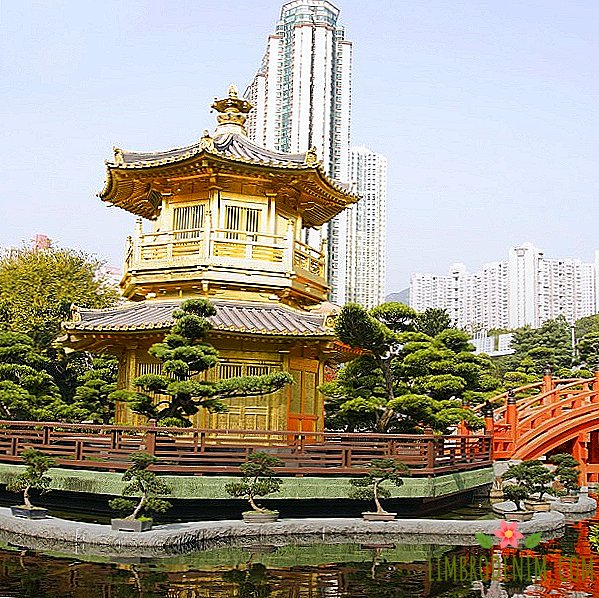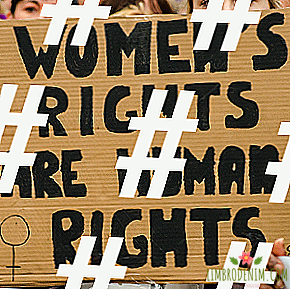How I moved to Hong Kong to work as a cook
November 2016, I stand in the kitchen of a restaurant in Hong Kongwhich has already become my dear. Half an hour ago, the cash register was gushing with checks, but now it has calmed down, so I have a few free minutes. How long? Nobody knows that. The kitchen is a confrontation between noise and silence, chaos and order, and cooks rarely manage to rest.
A year ago I was at home. Life did not go well: it seemed to me that I was having a thoughtless time, and even my relatives began to notice my wilted state. Once I read an article on anthropology, in which it was said that for the peoples who inhabited the territory of modern Russia, because of the long winter and short summer, there were always long periods of idleness, followed by short, urgent work. I lived in a similar rhythm. Of course, I tried to change my life - they mostly coincided with my trips abroad. However, the activity disappeared when I set foot on my native land.
One of these attempts was the study at the culinary school of Le Cordon Bleu in 2014. Then I still didn’t understand what the profession of a cook was, but Paris nevertheless became the starting point of my journey. For nine months we were taught the basics of French cuisine. There was progress: if at the first lesson I cut my fingers instead of vegetables, then in the middle of the training I even managed to visit the top five. However, the real school began later, during the internship, when I first encountered constant fatigue, edema, routine, stress, heat of the kitchen. At the same time, I felt the drive, learned what team spirit, mutual assistance is. Two years later, what was common then, is remembered with warmth: our working lunches under the frescoes of Jean Cocteau, breaks in the Luxembourg Garden, battles with kitchen towels.
My plan was this: after the internship, I return home, there are no end of offers from offers and it remains only to choose a place of work. Then I greatly underestimated the superiority of experience over a prestigious diploma, did not consider cooks who graduated from colleges in Russia as competitors. For the first six months, I regularly looked for work and went for interviews. In some places, they were ready to take me, but I refused - it was even funny, as if I had received a residence permit in countries where I had never planned to move.
I first encountered constant fatigue, swelling, routine, stress, heat of the kitchen. At the same time, I felt the drive, learned what team spirit is, mutual assistance
Soon the geography of my searches expanded, and, traveling across the countries of Asia, I simultaneously went to interviews there. The most interesting thing for me was South Korea, close to my native Vladivostok. Now I understand that putting on this country was the wrong step: I lost a lot of time until I realized that the local society is still very closed, and it is quite difficult to get a visa for my profession. The chef of one fine restaurant a year fed me with promises, asked to wait - because of this, I refused an internship with the famous Pierre Gagnaire. It seemed that stability was not far off, and it was more important to me than a short practice. Looking back, I see how frivolous was the preparation for the delivery of documents - both from the chief and from mine. Time passed, and the work permit was not all.
At that time, they wrote to me from a gaming zone almost ready for opening in Vladivostok, which soon became known as "Tigre de cristal". I decided to go for an interview. The chief of Greek origin spoke with several people at the same time, and then left one or two for further conversation. In my group it was me and one talented guy who at that time was the chef at a famous restaurant in the city. When I was announced the amount that I will receive, it became insulting for the cooks in Russia. Their average wages are mockingly low, but this is not easy work, full of risks. So from the idea of starting a career in Russia, I refused.
One day my brother called me: he and his wife went to Bali and invited me along. The trip was amazing: we traveled a lot, I learned to ride a scooter, loved surfing and rested from everything and everyone. On the way back we stopped in Hong Kong. I was fascinated by the rhythm of the city, I liked it with its indescribable color. All around, foreigners in suits were hurrying about their business, schoolgirls in white and blue outfits laughed merrily, and buildings of colonial times made it easy to imagine how a hundred years ago the Englishwoman walked along the same sidewalks under the lace umbrella.
I decided to move to Hong Kong at any cost. The next two months, I sent out a resume. There were responses, but as soon as it reached the visa issue, the negotiations smoothly disappeared. Fortunately, I was surrounded by wonderful people who are ready to help. My second cousin brought me to a second cousin, who introduced me to his Hong Kong friend, and he, in turn, put in a word for me before a friend whom he met in his church. This friend turned out to be a restaurant manager; He offered my candidacy to the owner. So, like dominoes, everything came together one to one, and I was able to go to Hong Kong to try to find my place in life.
At the airport, I was met by one of the many restaurant managers. From the first seconds I was struck by the incredible humidity of the air. The subtropical climate in summer tries to strangle - it was unexpected, but I didn’t concentrate on it. I was more concerned about the fact that in a few days I would have to give dinner to the restaurant owner and his huge family. I coped with this task and many others, smoothly joining the team and getting used to the work that I liked more and more. With many colleagues I became very close, they turned out to be interesting people. It seems to me that Hong Kongers are very mundane, reason wisely, but practical. Conversation about European literature or cinema did not work out, but they happily shared their secrets of survival in the city, besides with a sense of humor, they are fine.
At first it was hard for me, but still easier compared to Paris, where the work took away all the forces. In my free time I recognized the city, went to the nature, which strikingly resembles my native Primorsky Krai. Walking brought joy, all the time I was in high spirits. I climbed into the mountains, and at home I flew up on foot to the tenth floor three times a day.
Now I am learning to cope with my fears and continue to work no matter what - although in recent months life in a restaurant has become much more difficult.
Meanwhile, the temperature of the air began to rise above the comfortable for the person marks, and on the website of the Hong Kong Observatory a warning appeared about the dangerous heat. The "Very Hot" sign - a flaming red arrow - was first introduced in 2000. It is used when several criteria come together: high temperature, extreme humidity, elevated levels of ultraviolet radiation and poor air quality.
Hong Kong has developed a whole warning system, the most important of which are those that describe tropical rain, storm or typhoon. Such signals, as a rule, are of the order of three degrees: for example, in heavy rain you can see the signs "Amber rain", "Red rain" and "Black rain". The system is worked out like a Broadway production: the plates at the right time hang in all public places. Local residents have long been accustomed to, but still complain about endless rainfall.
But there is one sign that all working people without exception expect. Signal number eight is a strong typhoon warning that changes the city beyond recognition. Work stops, café verandahs are wrapped in plastic film, shutters are being lowered, and residents run to supermarkets to buy groceries like before the end of the world. Signs are everywhere: "Stock up! It's a typhoon today!" Half an hour before it starts, the street is still full of people, someone even dares to take pictures of the troubled sea. At the appointed hour, the streets are empty, and only the police ensure that people do not steal property from shops. Then what is happening on the street can only be listened to - this is quite enough to sit at home without remorse of conscience while the elements are raging.
In August, when it became unbearably hot in Hong Kong, I began to walk only at night: I easily walked ten kilometers after work. Somewhere in the middle of August, I began to notice unpleasant symptoms: tingling, pain, fatigue more than usual. One day, when I was going home, the ground seemed to shake beneath me, my head was spinning — I sat for a while and reached home on cotton legs. The next day only a slight weakness reminded me of what had happened the day before, so at night after work I decided to take a walk again. In the middle of my usual route, I again became ill, I bought cold water and went back. At one of the crossroads, the world around reeled again: I was scared, in horror poured a bottle of water on myself and continued on my way. At that moment I was indifferent to the hooting of passers-by, I was looking for a place to sit in the cool. When I finally got to the house, I was completely exhausted.
After that event, weakness, wadded feet and dizziness became my constant companions. Trying to understand that with me, I, like the hero "Three in a boat, not counting a dog," read a lot of medical sources, set all possible diagnoses for myself and lived in a daze for six weeks. I tried to understand what the problem was, but at the same time I was scared to find out the reason for the indisposition. I began to realize that the case, most likely, was in a nervous overstrain. I exploited my body, not giving it a rest. It answered me with what I least expected - panic attacks. Adrenaline overwhelmed me, I lost peace. Acclimatization, physical activity, interrupted only for four hours of sleep, dehydration, loneliness - surely everything played its role. Generally, panic and anxiety disorders in Hong Kong are not uncommon.
Now I am learning to cope with my fears and continue to work no matter what - although in recent months life in a restaurant has become much more difficult. Previously, our institution offered a "Chinese look" on French cuisine - and the Chinese had absolutely everything in it, and, of course, the interior too. The main audience was also Hong Kongers. To change the situation, it was decided to hire a French chef. Watching the difference in worldviews is very exciting. The Chinese love a fast pace and act on the principle of "don't complicate life"; the French do not share this idea at all. Two worlds collided before my eyes, and the chief needed me as an ally.
Once I started the day in the utility bakery, making bread, and finished, leading a huge team of unfamiliar chefs
My care has increased, and there is almost no free time left. Our Frenchman, a lover of heavy music, is very reminiscent of the chef from the film "Chef" - both externally and in his revolutionary activities in the restaurant. In the first week he ordered us to wash oysters; we obeyed, although we knew perfectly well that oysters die from this faster. After some time, the boss safely left this idea for the sake of a new one: from now on, we had to store oysters in the boxes in which they come to us, and in order to get them, we had to make holes in each box. Now I can count on the splinters in my hands how many times I have dived behind them in a wooden box.
Once we gave a banquet in another restaurant - it was sponsored by an organization created after the Second World War to revive French cuisine. That day I started at the bakery, making bread, and I finished it by leading a huge team of cooks I did not know. How did that happen? While I was exhausted from the heat, I threw buns into the oven, the chef continually came to me and swore at the lack of help from the restaurant staff. According to him, it was a provocation on the part of managers eager to see his failure. I didn’t particularly believe it, but the events on the eve might well have prompted this thought. The fact is that on the night before the event, the cooks for some reason pulled some of the blanks out of the refrigerators, so several dishes were immediately spoiled, and we had to cook them again.
At the most crucial moment, the chef called me to help him on the table, saying that the others refused to take part in the process. When I came to the kitchen, silence reigned. However, as soon as I took up the work, people one after another joined in it. When we finished, I was about to leave, but I was asked to stay to talk with the public. It is funny, but it was the hardest thing for me, the introvert, to overcome myself and go to the gym. The next day I heard a lot of positive feedback about my work, and soon the chef offered to become part of his team, which is working on a place with high-class cuisine.
Despite all the difficulties, I really love Hong Kong. Even more I love his people. There are two statements about the city with which I fully agree: "Hong Kong is a city in which you do not feel like a foreigner" and "If you can sleep in Hong Kong, then you can sleep everywhere." I like a lot in this place, I often notice it in comparison with South Korea, where I spent a lot of time before studying in Paris. People in Hong Kong are much more natural than, for example, in Seoul, especially when it comes to looks, they value their natural beauty. They are quick, but you can keep up with them, they are smart, but they are easy to understand, hospitable, but they do not favor. They can make fun of you, but so that you will laugh with them.
Recently, looking at the city from the panoramic window on the top floor of the bus, I came to the conclusion that the atmosphere of Hong Kong is neutral, it adjusts to your mood - this is such a universal background for human senses. In Hong Kong, nothing annoying, except the suffocating heat. My colleague once asked if I would go here if it were possible to turn back time. Of course, yes: I am grateful for the fate that led me to this city. I have never met so many cool, fun, intelligent people anywhere. I was lucky to work with them, and I am not yet ready to part with my colleagues or with an interesting city.
I still have not completely overcome panic disorder, in my head it is still as if someone switches the modes from a normal state to an alarming one - at these moments it seems to me that there is no way out, that I cannot cope with this work teeth. But then the fear goes away, and I decide to fight. Most of all I now want to be myself, that fearless and strong girl who was once.
Photo: claudiozacc - stock.adobe.com, aleciuf - stock.adobe.com






